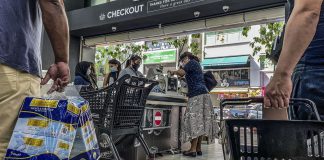KUALA LUMPUR, Nov 5 — Malaysia’s exports of palm oil products to the United States generally do not encounter any problems except for the trade restrictions imposed on palm oil from FGV Holdings Bhd from Oct 1, 2020, said Plantation Industries and Commodities Minister Datuk Dr Mohd Khairuddin Aman Razali.
“Hence, for now the restrictions imposed on Malaysian palm oil products by the US do not have a significant impact on the sector.
“FGV only exports 40 tonnes of palm oil to the US. Besides that, Malaysia exported 292,940 tonnes of palm oil to the US during the May-September 2020 period compared with 292,011 tonnes for the same period in 2019,” he told the Dewan Rakyat today.
Mohd Khairuddin was responding to a question from Datuk Jalaluddin Alias (BN-Jelebu) on the extent of the US’ boycot of palm oil from FGV was affecting imports of palm oil products from Malaysia for the year 2020.
On the veracity of the US Customs and Border Protection’s (CBP) claim that FGV allegedly used forced labour, Mohd Khairuddin said FGV had issued media statements to respond to the allegations.
“For your information, the US CPB has issued a Withhold Release Order (WRO) to impose restrictions on imports of palm oil and its products from FGV on Sept 30, 2020.
“The restriction was issued based on petitions submitted by several non-governmental organisations (NGOs) to CPB related to the alleged use of forced labour in the process of producing palm oil products by FGV. However, the validity of the allegation has not yet been confirmed,” he said.
He said the issue of forced labour and child labour in palm oil plantations was not a new issue.
“The Malaysian oil palm sector has been listed by the United States Department of Labor (US DOL) as the sector that produces goods using forced labour in its annual list entitled ‘The Department of Labor’s List of Goods Produced by Child Labor or Forced Labor’ as provided under the Trafficking Victims Protection Reauthorization Act (TVPRA) which commenced in 2009.
“In 2014, the Malaysian palm oil sector was not only listed as a sector that used forced labour but also child labour in oil palm plantations and the listing remains to this day,” he said.
Mohd Khairuddin said the Malaysian law clearly does not allow any form of torture, oppression, physical and sexual violence against any employee in all sectors in the country.
However, he said the holding of personal identification documents (passports) by the employers could have occured on the basis of security after obtaining consent from the employees.
“However, this matter is one of the elements of forced labour as outlined by the International Labour Organisation (ILO),” he said.
Mohd Khairuddin said a solution had been sought to ensure that employers did not keep their employees’ passports.
“One of the methods that has been done by most of the oil palm plantation companies is to provide a special place to keep passports, and entitled workers have the rights take theirs at any time.
“The government really emphasises the principles of fairness and social justice of workers with the enforcement of Labour Law and also Acts that protect their welfare.
“Technical issues (such as the actions of employers holding passports, employees bringing children to the farms because there is no guardian at home) needs to be explained to the companies as they are regarded as one of the elements of forced labour (by ILO) that may be overlooked by them (the companies).
“The ministry, through the Malaysian Palm Oil Board (MPOB), will continue to actively conduct advocacy programmes to the industry to explain such matters,” he said.
















